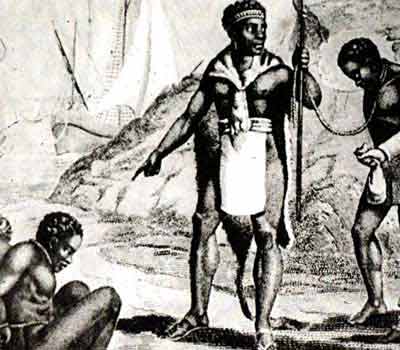If you are not African (Black) and/or you don’t participate in and pay close attention to issues within the African liberation movement, you probably won’t have much framework for what I’m talking about here. Within African community dialogues within the U.S. there is a contentious discussion about the true origins and connections of Africans within the U.S. today with the transatlantic slave trade. These discussions are raging everywhere from African churches to petti-bourgeoisie opportunism electoral politics, to revolutionary nationalist organizing spaces. The central debate centers around how we came to the Western Hemisphere. Did the majority of us come here through the transatlantic slave trade, kidnapped from Africa? Or, did we come thousands of years before that on our own? Or, were we always here and therefore have no actual connection to Africa?
1 Comment
SelfRule-Allah
3/16/2020 03:48:20 pm
It saddens me to cee people such as Dane Calloway etc spearheading the “we not Africans ” movement, totally disregarding the trials and tribulations that our ancestors had to endure during such painful times!
Reply
Leave a Reply. |
Archives
March 2023
Categories |


 RSS Feed
RSS Feed
